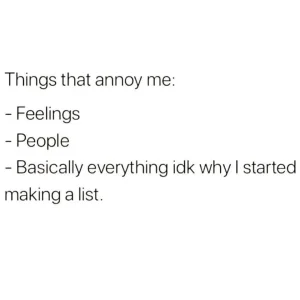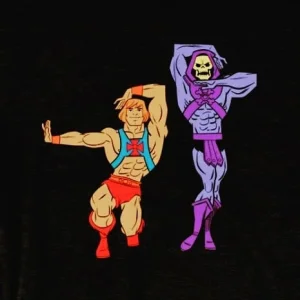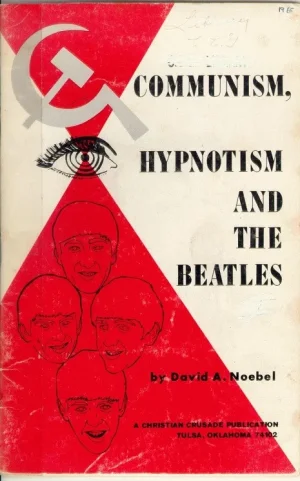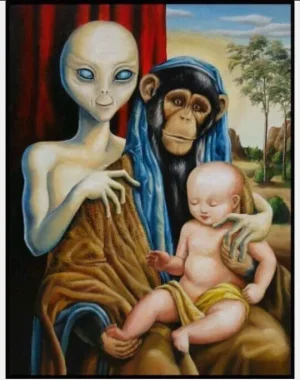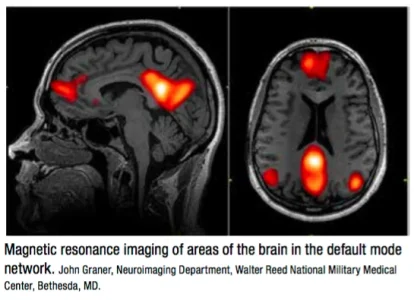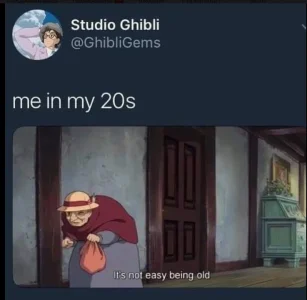Skarekrow
~~DEVIL~~
- MBTI
- Ni-INFJ-A
- Enneagram
- Warlock
@sassafras and whomever else cares!
Here is the lecture I gave the other night...I haven’t edited it yet...so excuse the part where it says stuff like (first experience story).
Some is in kind of shorthand too...reminders to talk about this or that.
When you asked me about pain the other day I thought this could possibly be of some help.
There are also several places that I expanded upon what was written, so if you would like me to do that in regards to a certain technique or idea let me know.
This was, of course also geared toward utilizing entheogenic substances - i.e. magic mushrooms, but the treatments are the same whether it’s augmented by plant medicine or not.
(though it might really help, lol)
~~~~~~~~~~~~~~~~~~~~~~~~~~~~~~~~~~~~~~~~~~~~~~~~~~~
Hello/Welcome….thank you for coming out.
Thank Carolyn and PEP….remind to donate for space rental.
Introduce self.
I know it isn’t easy for those of us dealing with chronic pain issues to always make it to scheduled events, I appreciate you giving me a chance to talk with you all.
I know some here may be well versed in how these substances work, while others are not as much.
And I know that some of you have some background working with chronic pain and conditions professionally and some are here because they are in pain or for other reasons.
In some cultures pain is viewed as a gift from God.
It can be a barometer of how our structural wellbeing as well as a measure of our brain and emotional wellbeing.
Let me just define our pain as two-fold…the primary source of physical pain, our emotional reaction to that being the secondary source of pain…both equal how much we are suffering at any given time.
The brain does not differentiate between emotional and physical pain…it makes later judgments but it is received and deciphered by the same system.
As a result pain wires in emotions and our emotions can exacerbate your pain.
If it fires, it wires.
You body tries to be as efficient as possible…this includes pain signals…it will reinforce the nervous pathways as well as physically change areas of the brain.
Our pain response is a back and forth of constant signals, from the site of the pain, to the spinal cord, then to the brain, then back again down and through the whole system again and again.
Each time it hits the spinal cord there are other nerves that are stimulated which trigger the release of stress hormones…as it reaches the brain it goes to our fight, flight, or freeze system and our brain then makes a series of judgments about the pain.
If you felt a sharp pain while putting on you shoes and in one case a pin falls out - where in another case a spider crawls out - which one would cause you the most distress?
Usually the spider.
This causes much greater suffering because a learned judgment was applied to the sensation.
It’s not that the pain has gotten worse, but that our judgement of that pain has decided to react a certain way that in the context of chronic pain is no longer a good reaction that we want to encourage.
Our brains work by a series of predictive coding type thinking.
If the brain thinks something is going to happen it will help create it.
For example it will adjust your BP to keep you from fainting not when you are in the process of standing up, but in the moments before you stand when you make the decision to do so.
The same can be said of our face becoming flushed from an emotional response such as embarrassment…this is our emotions creating a physical response.
When structural pain becomes chronic our brain and body go through a series of physical changes that eventually end up affecting how we react and deal with the pain and the stressor in our lives.
A pain signal generally takes around 3-6 months of constant simulation to become a chronic pain condition.
It is known that pain in these patients (at some point) becomes a spontaneous percept, i.e., an intrinsic brain activity occurring even in the absence of explicit brain input or output (Foss et al., 2006).
It is the combination of the chronic signals as well as our own reactions and judgements that can influence and eventually determine our level of suffering.
When we become trapped not just in the pain, but the emotional suffering that they induce we ourselves can create negative pain or anxiety or depression loops.
You can think of certain unwanted natural reactions we have as spokes in a wheel of a negative pain loop.
Each one helps to hold up the rest and keep the negative condition spiraling down.
These are things like:
Catastrophizing or ruminating about the pain or your emotional state.
Negative medical information - how your Doctor speaks to you, etc.
Fear…fear about the future, fear of the pain or more pain, fear of more loss, fear in general is a big driver in this state.
Avoidance - avoidance of activities and anything that could possibly hurt you more.
This results in disuse, disability, depression and anxiety.
And though the last few started out as reactionary, they eventually can become habitual.
Rumination or catastrophizing is at it’s base level - fear driven…
It affects the area of the brain known as the Default Mode Network.
Imaging studies have shown a set of brain regions that usually decrease their activity during task performance when compared with the average brain activity at rest.
The fact that these regions were more active at rest than during task performance suggested the existence of a resting state in which the brain remained active in an organized manner, which was called the “default mode” of brain function
Many, many studies now are showing how this region is being physically altered by conditions like chronic pain…this in turn can cause this area to act improperly and then become the secondary cause of many other issues ,the most prevalent of which are anxiety and depression…but they have also made strong correlations to IBS and other similar conditions.
It hyper connects certain brain regions like the medial thalamus - an area of the brain associated with the affective and emotional aspects of pain.
While at the other end of the spectrum there is a loss of connectivity of the medial prefrontal cortex and the rest of the brain…while it adds more connectivity to the DMN.
The PFC is used to intelligently guide thought, action, and emotion, including the inhibition of inappropriate thoughts, distractions, actions, and feelings…this has basically been hijacked by the DMN and it is believed that those higher thoughts and knowledge then must pass through the erroneous signal within the DMN in order to still maintain connection to other brain regions.
Those with the most dysregulation, were also those who’s pain catastrophizing, rumination, and neuroticism was the most active.
Pain rumination is similar to but also distinct from emotionally negative thinking patterns like those that occur with depression alone.
Whereas rumination always involves excessive attention to distressing thoughts and stimuli - this specific focus on pain does in turn affect brain networks associated with attention, pain perception, and pain modulation.
In a normal person the DMN is active when people are not engaged with any specific task or stimulus…it is suppressed when your attentions shift to a task or stimulus.
But for someone in chronic pain it can become a form of self-torture.
I have personally found that the combination of education, meditation, and the safe use of entheogenic substances to be a huge key in unlocking our suffering.
It is no coincidence that people have reported their depression lifting, or their anxiety going away…the suffering caused by chronic pain as well as other conditions like IBS an PTSD are all tied together in those same brain regions that substances like psilocybin affect.
It’s the way they affect those under and overactive regions that explains a lot.
In a nutshell they work in a way reversing the state of mind that is functioning after the DMN has physically changed the brain.
The good news is that they have found that such brain alterations can be reversed.
Not surprisingly this is also where the seat of the ego is believed to be.
Anger, withdrawal and resentment can seem like armor to protect yourself from more pain.
You may be seeking safety from the person who hurt you in the case of those who have past trauma exacerbated by their pain.
Perhaps you forgive too easily and forget that someone behaves in certain ways, so you get hurt again.
The answer is not to protect yourself from possible future suffering by doing something that creates suffering in the present.
This also means learning to be more present which entheogens do very well - (first experience.)
It’s learning to recognize when we are suffering from future pain or pain from the past, be it physical or emotional.
If you are always worrying about how your pain and illness are going to progress in the future you are suffering pain that has not even arrived yet!
Which in turn only amplifies the pain/depression/anxiety cycle.
The same goes for dwelling on past choices we wish we had done differently…there are millions of choices that brought you to that place, and yet your mind finds one thing to focus on and torment you with - all in order to protect it from occurring again.
Much suffering comes from judgmental thinking.
Once we form judgments, the ego likes to ignore or gloss over inconsistent or contradictory information.
So if you judge something to be "awful," someone as "selfish," or yourself as "pathetic," you are more likely to experience it that way.
This also applies to how much you expect something to hurt.
In chronic pain, for example, response options to pain can narrow such that the dominant mode of responding is one of pain avoidance – the person’s life is dominated by efforts to avoid or eliminate pain.
The literature is replete with data suggesting that such inflexible avoidance brings with it broader negative consequences in the form of worsening and sustained disability and distress.
Spending the day in bed to avoid pain simply doesn’t work for those who have chronic pain.
The pain returns.
Pushing through the “pain barrier” doesn’t work – because beyond that barrier is more pain.
In other words, pain persists in spite of persistent behavior to avoid it.
So what can we do to break the spokes of this terrible wheel or loop?
(because breaking one will eventually break down the others, especially with help from plant medicines and similar.
First of all I highly recommend that some kind of meditative practice be taken up…if you are unable to sit still there are other forms of meditation such as walking mindfulness and active meditations like yoga and tai qi.
We understand through fMRI imaging that meditation of all sorts calm the DMN even in those who have altered brain structure…the word is neuroplasticity…and most of the physical changes are reversible and eventually can become somewhat normal again.
The amazing thing about things like psilocybin in the areas of the brain that it effects.
It hyper connects the brain in just about every region…but - the DMN.
It reduces blood flow and in turn calms the region…you have just effectively turned down the volume on the source of your secondary suffering.
Suffering = Pain + Resistance
One way is to work with acceptance.
You truly have to put out the welcome mat for your pain if you are ever going to learn how to best get along with one another.
Accepting pain is very counterintuitive to our brain…which is why it’s a good thing psilocybin has also been shown to shift your perception of things with the ego quieted or removed altogether.
It's shifting your focus away from how things "should be" and towards how they are.
We often make the mistake of thinking that if we accept painful situations we will become complacent…that we are “giving up” somehow.
Accepting pain does not mean you are giving up, it means you are recognizing the present for what it is in a realistic manner and maintaining a good amount of indifference to the emotional responses it brings forth.
It helps to separate the emotions from the pain signals.
It helps to be able to say - I feel this way because of a chronic signal and not just wander lost without any reason why.
That in itself can become a terrible rumination.
It helps to recognize the amount of tension being held in the body.
Self critical, perfectionist, intuitive and introverts fight themselves.
One of the largest factors in this that I did not discuss is the stressors or our society we live in that we have very little control over such as inflation, politics, housing, jobs, personal relationships, etc.
No vacation or sick leave.
Psychosocial stress or disadvantage is considered by some to be the #1 reason pain becomes chronic.
(story about walking and neck)
Affirmations!
To reduce the danger/alarm mechanism…reduces fear, worry, anticipation and monitoring of symptoms.
Not - I think I can…but - can we fix it? yes we can.
Practice genuine outcome indifference.
Tell body/brainwhat to do - easy way or hard way.
Say each time you do the action that causes you pain - This won’t hurt.
You are reprogramming it.
Remember the instinct to protect from movement is wrong!
Set challenging yet attainable goals.
(here is mine for the month)
Write about your emotions not the pain itself, about or to the people who piss you off, the anger, the frustration you feel….then throw it away, burn it.
Your brain can let it go more easily.
Emotional expression therapy.
Understand that your symptoms are real but are a structural abnormality caused by learned neural pathways.
Retaining the hope and belief that your pain state and suffering can improve.
Detach from the symptoms and belief of being damaged - your brain has just been sensitized a certain way.
Breaking out of rumination (which actually means a cow chewing cud), which is what we are actually doing with our thoughts, lol.
….breaking out first begins with recognition.
Set an alarm for 30 mins or an hour and then see how much of that time you spent thinking about the pain, discomfort, depression, anxiety, the future fear, the past regret, the medical catastrophizing.
If you spend 2 hours a day doing ruminating - that equal out to an entire month each year spend in worry, fear, sadness and anxiety.
Then how do stop thinking about thinking too much?
You turn off the DMN in it’s high idle of chronic pain by engaging the brain in an active manner.
This can be as easy as putting on music (dopamine from thinking about it), listening to or reading a book, watching a program or going for a walk…being more mindful.
Mindfulness and it’s positives and negatives….discuss.
For the first time since…I don’t know, maybe never…I was able to witness beauty to such a depth and feel a universal love that seems to permeate all to the level of it becoming a subjective personal religious-type experience.
For someone who is depressed or feeling overwhelmed by the challenges and stressors of their life - this is a transformational taste of what could be if only your perspective is shifted slightly.
Sometimes it is only that slight shift that is needed to plant a seed that will grow.
Write a list for yourself of all the positives that chronic pain has given to you.
I have found this very helpful and I just wanted to share this with you before I finish.
On this journey I have found…
Better self-understanding, self-awareness, and self-mastery.
Greater compassion.
Deeper empathy.
Patience.
Greater awareness of time in it's many iterations.
Forgiveness.
Gratitude.
Clarity of what the important things and people in life are.
Clarity of who your true friends and loved ones are.
Greater recognition and appreciation of the good moments and things that can sometimes be fleeting.
Self-fortitude.
HUMILITY.
Education, both of myself and others.
Perspective(s).
Introspection.
Can/has deepened parts of relationships with others.
Resilience.
Greater emotional self-awareness.
Greater understanding of what triggers the pain.
Overcoming depression and anxiety.
Better meditation practice.
Decrease in fear from the various medical/emotional complications that chronic pain/illness can cause.
Decrease in pain avoidance.
Less future/past oriented mindset, more present.
Ability to separate my physical pain from my emotional pain.
Ability to then decrease my physical/emotional pain through meditation and other techniques.
Self-compassion and self-forgiveness.
Greater desire to help those still suffering.
The things we resist most - death, loss, illness, pain - usually require consistent if not daily efforts to accept.
One can feel that if we don’t resist and fight what we don't like, then it will consume and overtake us.
In truth, it's usually by avoiding or resisting or fighting what we don't like, that we lose the ability to change it.
That is why the extra helping hand that certain substances provide can be incredibly powerful tools.
Accepting truths like these about your pain, illness, or situation are easy to resist and require ongoing efforts to accept.
That's not to say they will plague you forever; on, the contrary, learning to accept them is the only way to overcome the suffering they otherwise cause.
Thank you very much…I will try to answer any questions if there is time!
Here is the lecture I gave the other night...I haven’t edited it yet...so excuse the part where it says stuff like (first experience story).
Some is in kind of shorthand too...reminders to talk about this or that.
When you asked me about pain the other day I thought this could possibly be of some help.
There are also several places that I expanded upon what was written, so if you would like me to do that in regards to a certain technique or idea let me know.
This was, of course also geared toward utilizing entheogenic substances - i.e. magic mushrooms, but the treatments are the same whether it’s augmented by plant medicine or not.
(though it might really help, lol)
~~~~~~~~~~~~~~~~~~~~~~~~~~~~~~~~~~~~~~~~~~~~~~~~~~~
Hello/Welcome….thank you for coming out.
Thank Carolyn and PEP….remind to donate for space rental.
Introduce self.
I know it isn’t easy for those of us dealing with chronic pain issues to always make it to scheduled events, I appreciate you giving me a chance to talk with you all.
I know some here may be well versed in how these substances work, while others are not as much.
And I know that some of you have some background working with chronic pain and conditions professionally and some are here because they are in pain or for other reasons.
In some cultures pain is viewed as a gift from God.
It can be a barometer of how our structural wellbeing as well as a measure of our brain and emotional wellbeing.
Let me just define our pain as two-fold…the primary source of physical pain, our emotional reaction to that being the secondary source of pain…both equal how much we are suffering at any given time.
The brain does not differentiate between emotional and physical pain…it makes later judgments but it is received and deciphered by the same system.
As a result pain wires in emotions and our emotions can exacerbate your pain.
If it fires, it wires.
You body tries to be as efficient as possible…this includes pain signals…it will reinforce the nervous pathways as well as physically change areas of the brain.
Our pain response is a back and forth of constant signals, from the site of the pain, to the spinal cord, then to the brain, then back again down and through the whole system again and again.
Each time it hits the spinal cord there are other nerves that are stimulated which trigger the release of stress hormones…as it reaches the brain it goes to our fight, flight, or freeze system and our brain then makes a series of judgments about the pain.
If you felt a sharp pain while putting on you shoes and in one case a pin falls out - where in another case a spider crawls out - which one would cause you the most distress?
Usually the spider.
This causes much greater suffering because a learned judgment was applied to the sensation.
It’s not that the pain has gotten worse, but that our judgement of that pain has decided to react a certain way that in the context of chronic pain is no longer a good reaction that we want to encourage.
Our brains work by a series of predictive coding type thinking.
If the brain thinks something is going to happen it will help create it.
For example it will adjust your BP to keep you from fainting not when you are in the process of standing up, but in the moments before you stand when you make the decision to do so.
The same can be said of our face becoming flushed from an emotional response such as embarrassment…this is our emotions creating a physical response.
When structural pain becomes chronic our brain and body go through a series of physical changes that eventually end up affecting how we react and deal with the pain and the stressor in our lives.
A pain signal generally takes around 3-6 months of constant simulation to become a chronic pain condition.
It is known that pain in these patients (at some point) becomes a spontaneous percept, i.e., an intrinsic brain activity occurring even in the absence of explicit brain input or output (Foss et al., 2006).
It is the combination of the chronic signals as well as our own reactions and judgements that can influence and eventually determine our level of suffering.
When we become trapped not just in the pain, but the emotional suffering that they induce we ourselves can create negative pain or anxiety or depression loops.
You can think of certain unwanted natural reactions we have as spokes in a wheel of a negative pain loop.
Each one helps to hold up the rest and keep the negative condition spiraling down.
These are things like:
Catastrophizing or ruminating about the pain or your emotional state.
Negative medical information - how your Doctor speaks to you, etc.
Fear…fear about the future, fear of the pain or more pain, fear of more loss, fear in general is a big driver in this state.
Avoidance - avoidance of activities and anything that could possibly hurt you more.
This results in disuse, disability, depression and anxiety.
And though the last few started out as reactionary, they eventually can become habitual.
Rumination or catastrophizing is at it’s base level - fear driven…
It affects the area of the brain known as the Default Mode Network.
Imaging studies have shown a set of brain regions that usually decrease their activity during task performance when compared with the average brain activity at rest.
The fact that these regions were more active at rest than during task performance suggested the existence of a resting state in which the brain remained active in an organized manner, which was called the “default mode” of brain function
Many, many studies now are showing how this region is being physically altered by conditions like chronic pain…this in turn can cause this area to act improperly and then become the secondary cause of many other issues ,the most prevalent of which are anxiety and depression…but they have also made strong correlations to IBS and other similar conditions.
It hyper connects certain brain regions like the medial thalamus - an area of the brain associated with the affective and emotional aspects of pain.
While at the other end of the spectrum there is a loss of connectivity of the medial prefrontal cortex and the rest of the brain…while it adds more connectivity to the DMN.
The PFC is used to intelligently guide thought, action, and emotion, including the inhibition of inappropriate thoughts, distractions, actions, and feelings…this has basically been hijacked by the DMN and it is believed that those higher thoughts and knowledge then must pass through the erroneous signal within the DMN in order to still maintain connection to other brain regions.
Those with the most dysregulation, were also those who’s pain catastrophizing, rumination, and neuroticism was the most active.
Pain rumination is similar to but also distinct from emotionally negative thinking patterns like those that occur with depression alone.
Whereas rumination always involves excessive attention to distressing thoughts and stimuli - this specific focus on pain does in turn affect brain networks associated with attention, pain perception, and pain modulation.
In a normal person the DMN is active when people are not engaged with any specific task or stimulus…it is suppressed when your attentions shift to a task or stimulus.
But for someone in chronic pain it can become a form of self-torture.
I have personally found that the combination of education, meditation, and the safe use of entheogenic substances to be a huge key in unlocking our suffering.
It is no coincidence that people have reported their depression lifting, or their anxiety going away…the suffering caused by chronic pain as well as other conditions like IBS an PTSD are all tied together in those same brain regions that substances like psilocybin affect.
It’s the way they affect those under and overactive regions that explains a lot.
In a nutshell they work in a way reversing the state of mind that is functioning after the DMN has physically changed the brain.
The good news is that they have found that such brain alterations can be reversed.
Not surprisingly this is also where the seat of the ego is believed to be.
Anger, withdrawal and resentment can seem like armor to protect yourself from more pain.
You may be seeking safety from the person who hurt you in the case of those who have past trauma exacerbated by their pain.
Perhaps you forgive too easily and forget that someone behaves in certain ways, so you get hurt again.
The answer is not to protect yourself from possible future suffering by doing something that creates suffering in the present.
This also means learning to be more present which entheogens do very well - (first experience.)
It’s learning to recognize when we are suffering from future pain or pain from the past, be it physical or emotional.
If you are always worrying about how your pain and illness are going to progress in the future you are suffering pain that has not even arrived yet!
Which in turn only amplifies the pain/depression/anxiety cycle.
The same goes for dwelling on past choices we wish we had done differently…there are millions of choices that brought you to that place, and yet your mind finds one thing to focus on and torment you with - all in order to protect it from occurring again.
Much suffering comes from judgmental thinking.
Once we form judgments, the ego likes to ignore or gloss over inconsistent or contradictory information.
So if you judge something to be "awful," someone as "selfish," or yourself as "pathetic," you are more likely to experience it that way.
This also applies to how much you expect something to hurt.
In chronic pain, for example, response options to pain can narrow such that the dominant mode of responding is one of pain avoidance – the person’s life is dominated by efforts to avoid or eliminate pain.
The literature is replete with data suggesting that such inflexible avoidance brings with it broader negative consequences in the form of worsening and sustained disability and distress.
Spending the day in bed to avoid pain simply doesn’t work for those who have chronic pain.
The pain returns.
Pushing through the “pain barrier” doesn’t work – because beyond that barrier is more pain.
In other words, pain persists in spite of persistent behavior to avoid it.
So what can we do to break the spokes of this terrible wheel or loop?
(because breaking one will eventually break down the others, especially with help from plant medicines and similar.
First of all I highly recommend that some kind of meditative practice be taken up…if you are unable to sit still there are other forms of meditation such as walking mindfulness and active meditations like yoga and tai qi.
We understand through fMRI imaging that meditation of all sorts calm the DMN even in those who have altered brain structure…the word is neuroplasticity…and most of the physical changes are reversible and eventually can become somewhat normal again.
The amazing thing about things like psilocybin in the areas of the brain that it effects.
It hyper connects the brain in just about every region…but - the DMN.
It reduces blood flow and in turn calms the region…you have just effectively turned down the volume on the source of your secondary suffering.
Suffering = Pain + Resistance
One way is to work with acceptance.
You truly have to put out the welcome mat for your pain if you are ever going to learn how to best get along with one another.
Accepting pain is very counterintuitive to our brain…which is why it’s a good thing psilocybin has also been shown to shift your perception of things with the ego quieted or removed altogether.
It's shifting your focus away from how things "should be" and towards how they are.
We often make the mistake of thinking that if we accept painful situations we will become complacent…that we are “giving up” somehow.
Accepting pain does not mean you are giving up, it means you are recognizing the present for what it is in a realistic manner and maintaining a good amount of indifference to the emotional responses it brings forth.
It helps to separate the emotions from the pain signals.
It helps to be able to say - I feel this way because of a chronic signal and not just wander lost without any reason why.
That in itself can become a terrible rumination.
It helps to recognize the amount of tension being held in the body.
Self critical, perfectionist, intuitive and introverts fight themselves.
One of the largest factors in this that I did not discuss is the stressors or our society we live in that we have very little control over such as inflation, politics, housing, jobs, personal relationships, etc.
No vacation or sick leave.
Psychosocial stress or disadvantage is considered by some to be the #1 reason pain becomes chronic.
(story about walking and neck)
Affirmations!
To reduce the danger/alarm mechanism…reduces fear, worry, anticipation and monitoring of symptoms.
Not - I think I can…but - can we fix it? yes we can.
Practice genuine outcome indifference.
Tell body/brainwhat to do - easy way or hard way.
Say each time you do the action that causes you pain - This won’t hurt.
You are reprogramming it.
Remember the instinct to protect from movement is wrong!
Set challenging yet attainable goals.
(here is mine for the month)
Write about your emotions not the pain itself, about or to the people who piss you off, the anger, the frustration you feel….then throw it away, burn it.
Your brain can let it go more easily.
Emotional expression therapy.
Understand that your symptoms are real but are a structural abnormality caused by learned neural pathways.
Retaining the hope and belief that your pain state and suffering can improve.
Detach from the symptoms and belief of being damaged - your brain has just been sensitized a certain way.
Breaking out of rumination (which actually means a cow chewing cud), which is what we are actually doing with our thoughts, lol.
….breaking out first begins with recognition.
Set an alarm for 30 mins or an hour and then see how much of that time you spent thinking about the pain, discomfort, depression, anxiety, the future fear, the past regret, the medical catastrophizing.
If you spend 2 hours a day doing ruminating - that equal out to an entire month each year spend in worry, fear, sadness and anxiety.
Then how do stop thinking about thinking too much?
You turn off the DMN in it’s high idle of chronic pain by engaging the brain in an active manner.
This can be as easy as putting on music (dopamine from thinking about it), listening to or reading a book, watching a program or going for a walk…being more mindful.
Mindfulness and it’s positives and negatives….discuss.
For the first time since…I don’t know, maybe never…I was able to witness beauty to such a depth and feel a universal love that seems to permeate all to the level of it becoming a subjective personal religious-type experience.
For someone who is depressed or feeling overwhelmed by the challenges and stressors of their life - this is a transformational taste of what could be if only your perspective is shifted slightly.
Sometimes it is only that slight shift that is needed to plant a seed that will grow.
Write a list for yourself of all the positives that chronic pain has given to you.
I have found this very helpful and I just wanted to share this with you before I finish.
On this journey I have found…
Better self-understanding, self-awareness, and self-mastery.
Greater compassion.
Deeper empathy.
Patience.
Greater awareness of time in it's many iterations.
Forgiveness.
Gratitude.
Clarity of what the important things and people in life are.
Clarity of who your true friends and loved ones are.
Greater recognition and appreciation of the good moments and things that can sometimes be fleeting.
Self-fortitude.
HUMILITY.
Education, both of myself and others.
Perspective(s).
Introspection.
Can/has deepened parts of relationships with others.
Resilience.
Greater emotional self-awareness.
Greater understanding of what triggers the pain.
Overcoming depression and anxiety.
Better meditation practice.
Decrease in fear from the various medical/emotional complications that chronic pain/illness can cause.
Decrease in pain avoidance.
Less future/past oriented mindset, more present.
Ability to separate my physical pain from my emotional pain.
Ability to then decrease my physical/emotional pain through meditation and other techniques.
Self-compassion and self-forgiveness.
Greater desire to help those still suffering.
The things we resist most - death, loss, illness, pain - usually require consistent if not daily efforts to accept.
One can feel that if we don’t resist and fight what we don't like, then it will consume and overtake us.
In truth, it's usually by avoiding or resisting or fighting what we don't like, that we lose the ability to change it.
That is why the extra helping hand that certain substances provide can be incredibly powerful tools.
Accepting truths like these about your pain, illness, or situation are easy to resist and require ongoing efforts to accept.
That's not to say they will plague you forever; on, the contrary, learning to accept them is the only way to overcome the suffering they otherwise cause.
Thank you very much…I will try to answer any questions if there is time!

